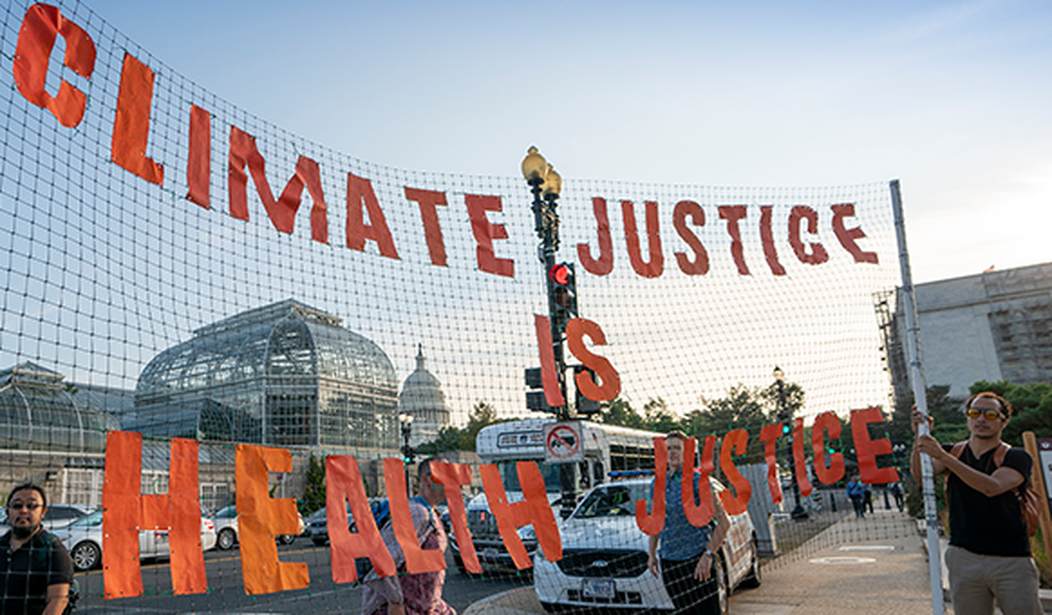Cities and states are suing energy companies in a desperate attempt to erase their poor spending choices. Local officials argue oil and gas companies contribute to climate change and must be held accountable, but beneath this façade, leftist politicians are trying to win the lawsuit lottery to stave off fiscal insolvency.
Government officials keep pursuing these suits because they can’t figure out how to fix the budget deficits they have created. Suing big corporations in friendly jurisdictions is an escape hatch to avoid the repercussions of decades of wasteful spending. Unfortunately, these efforts hurt the wallets of everyday Americans who have money invested in energy companies, and if successful, energy costs would likely rise across America.
Analyzing the legal actions taken by various localities show they are trying to make a quick buck. Over and over, states and cities make unprovable and exaggerated claims contradicting Supreme Court precedent. Sometimes the mask slips and officials even admit that the suits are really about generating revenue.
Local officials claim climate change will soon devastate their cities in legal filings, but argue the opposite when money is on the line. Horace Cooper, a senior fellow with the National Center for Public Policy Research, describes this hypocrisy.
"It seems the left hand isn't watching what the far-left hand is up to. San Mateo County, California, for example, claims in its lawsuit against the energy industry that there's a 93% risk
of a devastating climate-change-related flood by 2050. Yet its municipal bond offering to potential investors dismissively notes that it's ‘unable to predict whether sea-level rise or other impacts of climate change or flooding from a major storm will occur.’”
San Francisco city officials made similarly apocalyptic arguments in their lawsuit, only to claim climate science was uncertain when trying to win over investors. City leaders were either lying about the devastating impacts of climate change or tricking investors into buying property that would soon be underwater. Thankfully, a federal judge threw out the San Francisco’s case writing, "The court will stay its hand in favor of solutions by the legislative and executive branches."
The Supreme Court reached an identical conclusion in 2011, finding 8-0 that the judiciary doesn’t have the authority to regulate emissions because the Clean Air Act gave regulatory powers to Congress and the EPA. Congress can change the law to make energy companies' activity illegal, but the courts can't.
So why are localities filing dishonest suits attempting to penalize legal activity? Because local officials have spent years running up deficits on pet projects and now need to generate revenue before they go belly up.
Public records reveal the leaders of Rhode Island view lawsuits against energy companies, as a way to prevent spending cuts. Janet Coit, director of the Department of Environmental Management, says suing oil and gas companies is meant to generate a "sustainable funding stream." Coit's comments show the real purpose of climate change suits, to bail out politicians who have made unwise choices for years and are now feeling the heat.
Rhode Island is a prime example of spending run amok, as state officials have accumulated a structural deficit projected at $4.1 million for the 2019-2020 fiscal year. Instead of addressing government excess, Rhode Island's governor ignored the deficit in her January State of State address.
A similar cycle is playing out in other jurisdictions, all governed by irresponsible leftist leaders. New York was facing an annual deficit between six and eight billion before COVID-19 hit because of an unwise minimum wage increase coupled with Medicaid expansion. State officials tried to fill this gap by suing Exxon Mobil but were humiliated in court. New York City leaders are picking up where the state left off by suing several energy companies for the alleged impacts of climate change.
Oakland's finance director was particularly blunt about why the city was running a deficit, "We believe expenditures are growing faster than revenues. We do believe this continues to have a lot of pressures on our core city services." The city's politicians racked up deficits of over $100 million, and now the same politicians are suing energy companies to make up for their poor choices. The same process is occurring in Baltimore and Boulder wher
Cities and states that have racked up debt because of profligate spending are trying to avoid spending cuts. Local officials are playing the lawsuit lottery by filing exaggerated and meritless claims against energy companies in hopes of finding a sympathetic judge. Instead of dragging energy companies to court and threatening to punish the consumer for city officials’ irresponsibility, these bureaucrats need to focus on repairing their fiscal health.

























Join the conversation as a VIP Member